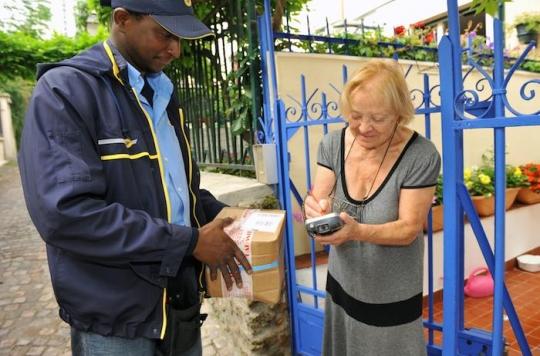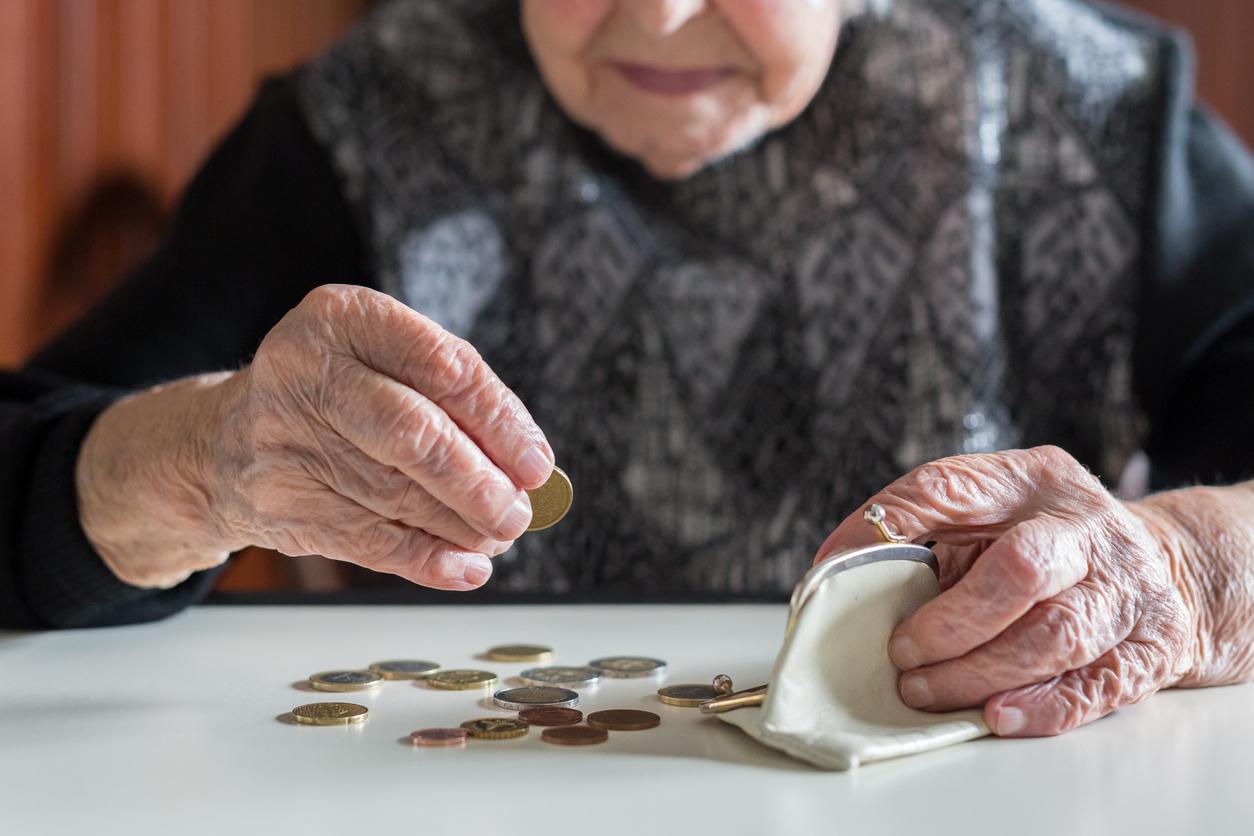By offering new personal services, aimed primarily at the elderly, La Poste is diversifying its activities.

Like every day, Yoan starts his day at 6.30am. He prepares his tour, then gets on his bike, three hours later, to start the distribution in Angers. Mail, parcels and registered letters are delivered, as always.
But since last December, the postman may make a few more stops. He has been participating in the “Watch over my parents” service that La Poste has been offering for almost six months. He is therefore called upon to visit elderly people *. Their children, who often live far away, rely on the postman to take a look, see if everything is going well, and report a possible problem.
Delphine Mallet, director of the Silver economy business unit of the La Poste group: “We have been doing pilots since last winter, to calibrate the service and the processes, and assess its interest for the elderly and their families …”
Immediately after the visit, Yoan fills out a questionnaire detailing the senior’s state of fitness, to which he can optionally add some comments, and which is immediately passed on to the children.
Trusted people
On defined days, at fixed times, Yoan therefore spends between five and fifteen minutes with people who know him, and who willingly open the door to a postman. he does. La Poste delivers 6 days a week, and it is not always possible to have the same postman on every visit, but generally only one or two letter carriers, at most three, visit the same person.
“The goal is to be able to discuss and exchange with them about their daily lives, to create a link,” he continues. You can’t change your interlocutor too often. “
Remote Support
“We also check that the alert box that is installed in their homes and the bracelet they wear are working well.” It is also the postman’s mission, in addition to providing a social bond, to ensure that everything is in order in the apartment, that the elderly do not let themselves go, and to worry about their needs. possible. Of course, the specifications also provide that the letter carriers check that no emergency is to be reported.
Delphine Mallet, director of the Silver economy business unit of the La Poste group: “We have included remote assistance, a call button in the event of an emergency, and a breakdown assistance service when there is a domestic concern. It is a package which, around the postman’s regular visit, offers more peace of mind to the elderly and families … “
Having no medical training, the check is summary, but reassures the children, in the same way as a neighbor could do. “In six months of visits, I haven’t had to deal with a single emergency,” Yoan explains. But I expect to be faced with it one day or another. Just in case, I did a little first aid, so I’ll probably be better equipped to get through it. “
Delphine Mallet, director of the Silver economy business unit of the La Poste group: “We do not carry out medical or pseudo-medical intervention at home. Our postmen are neither aspiring firefighters, nor doctors or nurses …. ”
For him, this service is an integral part of the postman’s job, and he does not see it as an additional workload. “Humanly, it’s very interesting,” he says. I am 37 years old, and the people I am responsible for looking after could be my grandparents. I have lived far away from my family, and I know my parents would have loved to have had this kind of service to make sure everything was okay. Suddenly, I take this mission very seriously. “
“My medication at home”
For several years, La Poste has been creating new personal services, often intended for seniors. Looking after my parents is not that recent. For several years now, the postal group has been using its mail carrier network for visits to the elderly, at the request of public bodies or local communities. During heat waves, for example, letter carriers have to go to the homes of vulnerable people, to check their presence and that they are in good health.
The group is also currently experimenting with drug delivery. If some pharmacies already offer the service, by courier or postal delivery, this time it is the postman who would take care of everything. Using an app, people who wish to take advantage of the service can request the letter carrier to come and collect their prescription. They then give it to their pharmacist, who prepares the drugs, and delivers them to the postman who brings them to the client.
” My medication at home always takes place in conjunction with the local pharmacy, explains Delphine Mallet, director of the La Poste group’s Silver economy business unit. This is important, in order to respect the pharmacist’s advisory role ”. The test underway in Bordeaux should soon extend to Loire-Atlantique and Vendée.
Aging well at home
La Poste is therefore fully involved in the silver economy, that is to say the senior market. With, at the center of the system, the postman, who represents the person of trust par excellence. It uses its image with the general public, and in particular the elderly, to offer services focused on aging well at home.
Other services are under study. Internet learning, through a simplified tablet and home training, intended to reduce the digital divide of seniors, already exists. “In the logic of diversifying our activities towards personal services, we are also studying the possibility of delivering meals to homes”, adds Delphine Mallet.
“These visits don’t change much for me,” says Yoan, the Angevin postman. No matter what, the people I visit are on my tour, and I walk past their homes every day. The only difference is that I regularly ring their doorbell to chat for a few minutes. “
A vision of its mission which, however, is not shared by all. The transition to personal services does not please certain factors, which see it as an additional workload, and the monetization of what, for them, should be an intrinsic part of their public service mission (see box).
Between 1 and 6 visits per week, for prices ranging between € 39.90 and € 139.90
Services that are expensive for individuals and postmen
“La Poste is clearly positioning itself on the silver economy market, but at the same time, it is closing post offices and degrading the quality of its historical services”. Emmanuel Cottin, departmental secretary at the CGT union of postal services in Paris, denounces the new strategy of the Post Office, which is also done, according to the union, to the detriment of the working conditions of postmen.
“Letter carriers do not have extra time freed up for the new personal services,” he adds. La Poste considers that there is a decrease in activity in mail delivery, which is true. At the same time, however, the number of postal workers has shrunk much more, putting a much greater workload on them than it was just ten years ago. “
It also refutes the need for reconversion of activities. “The turnover of new services is for the moment only 43 million euros, against 11 billion for mail. If we think that the new services will bring La Poste to life, we put our finger in the eye. “
Visits to the elderly, delivery of medicines … These services are part of the postman’s public service missions, which until now was carried out free of charge. La Poste now uses its status as a historic public company to sell them, and often at a high price, he believes. “The letter carrier and the post office are important to people, and she tries to promote her image and make a profit from it, just like any private business would. “
“We display a company that offers social links, which is modern, which goes digital,” continues Emmanuel Cottin. The reality is much less glorious, and there has been a constant deterioration in the quality of work for ten years. Massive use of subcontracting, particularly in the parcel business. The group has 20,000 workers on fixed-term contracts and temporary contracts, not counting the self-employed. Precariousness is growing, it is the reality of the postman’s job today … ”
surveillance
















